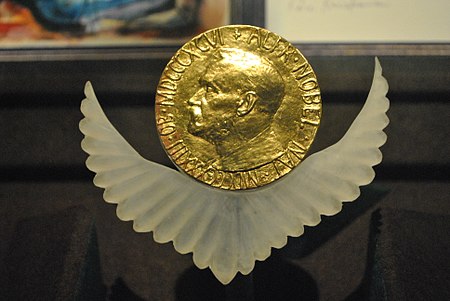VU Experts Help Understand: Nobel Peace Prize Awarded to Survivors of the Hiroshima and Nagasaki Bombings
 The Nobel Peace Prize has been awarded to “Nihon Hidankyo” – a Japanese civil organisation that brings together survivors of the atomic bomb. The Norwegian Nobel Committee honoured this organisation, also known as Hibakusha, for its efforts to create a world free of nuclear weapons. According to Professor Dovilė Jakniūnaitė from the Department of International Relations at Vilnius University’s Institute of International Relations and Political Science, while this recognition is symbolically significant, expecting changes in political practice would be naive.
The Nobel Peace Prize has been awarded to “Nihon Hidankyo” – a Japanese civil organisation that brings together survivors of the atomic bomb. The Norwegian Nobel Committee honoured this organisation, also known as Hibakusha, for its efforts to create a world free of nuclear weapons. According to Professor Dovilė Jakniūnaitė from the Department of International Relations at Vilnius University’s Institute of International Relations and Political Science, while this recognition is symbolically significant, expecting changes in political practice would be naive.
The organisation was founded in 1956 by ordinary Japanese people who had survived the nuclear attacks on Hiroshima and Nagasaki. These witnesses of history have warned about the dangers of nuclear weapons and contributed to global opposition to them by sharing their personal stories and organising educational campaigns.
“This confederation of organisations was established during the tensions of the Cold War as a local institution with international ambitions. The primary goal of Hibakusha was to preserve the historical memory of the disaster and to seek compensation. Their efforts to draw attention to the catastrophic humanitarian consequences of using nuclear weapons contributed to the establishment of a global norm against their use,” comments Prof. Jakniūnaitė.
She notes that the Japanese survivors of the atomic explosions had to fight persistently for their experiences and pain to be recognised and not forgotten or ignored in their home country. The Nobel Peace Prize is a symbolic recognition of these long-standing efforts and idealistic work. However, one should not expect it to translate into real political practice.
“The Nobel Committee has now drawn attention to the nuclear threat for the second time in a decade. In 2017, the laureate was the International Campaign to Abolish Nuclear Weapons. This is quite a direct message, expressing concern about states politically manipulating nuclear power. Among them is Russia, which holds the most nuclear weapons in the world and often resorts to threats,” says the professor.
She also believes that this award has another historical reference. It serves as a reminder that the first country to develop and the only one to use a nuclear weapon was the United States.
“The world order is no longer what it was at the start of the final decade of the last century. It is becoming increasingly difficult for liberal democracies to convince other players to adhere to the Nuclear Non-Proliferation Treaty (NPT). Among the many challenges associated with international security, I would highlight global fragmentation, growing polarisation among NPT member states, and the efforts of countries such as Iran or North Korea to proliferate weapons,” enumerates Prof. Jakniūnaitė.
According to her, challenges also arise from a basic desire to oppose the existing world order and the perception of declining U.S. power. In this geopolitical context, the most important task is to prevent states hostile to the current order from gaining more capabilities.
“When it comes to the world, tensions may not be increasing in number, but they are becoming more intense, raising the likelihood that conflicts will expand to encompass larger regions, particularly in the Middle East. At present, there is no strong organisation or leading state – no one is playing the role that the U.S. partially played in previously managing global tensions,” explains the international relations expert.
The Norwegian Nobel Institute registered 286 candidates for this year’s Peace Prize: 197 individuals and 89 organisations. Candidates can be nominated by former laureates, committee members, heads of state, members of parliament, and professors of political science, history, and international law.
Some experts had debated whether the prize should be awarded at all this year, given the complex global situation – there are currently more than 50 armed conflicts, with the number of victims having risen sharply over the past two decades. However, withholding the prize would be seen as a failure by the committee, so it was awarded.
Last year, the prize was awarded to imprisoned Iranian activist Narges Mohammadi for her fight against the oppression of women in Iran.
The laureates are honoured on 10th December – the date of the death of Swedish scientist Alfred Nobel, who initiated the establishment of these prizes in 1895. The ceremony takes place in the capitals of Sweden and Norway.
This year’s Nobel Prize amounts to 11 million Swedish kronor (around €972,000).